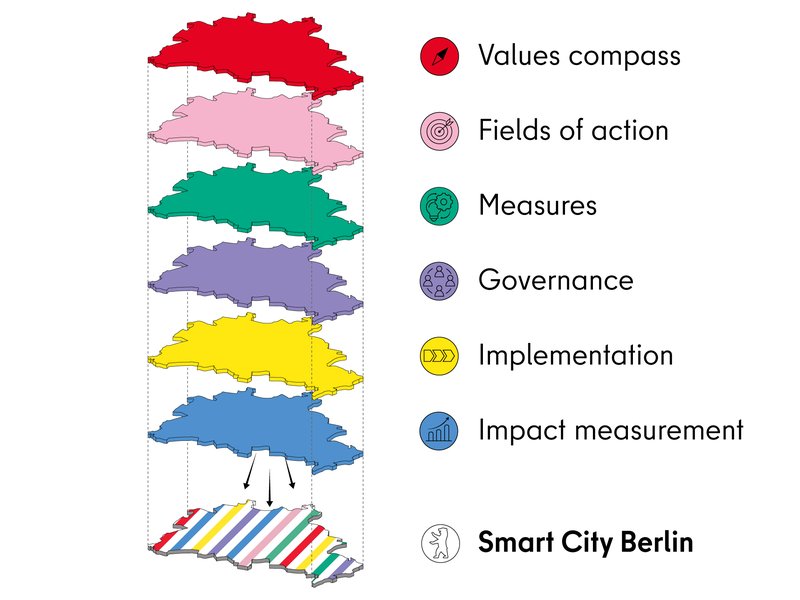GD:B is not designed as a stand-alone specialized strategy: it aims to support the achievement of existing urban development goals[1] and other specialized goals through the appropriate use of new technologies, tools and methods. GD:B is an umbrella strategy for a sustainable, smart Berlin. In order to promote Berlin’s transformation into a smart city [2], the GD:B [3] strategy offers a way of establishing new working methods and forms of cooperation, more agile* structures, competence building, and a systematic transfer of knowledge between administration and the urban community. [4] In this way, it provides a platform for Berlin’s digital transformation. The learning strategy and its implementation are the responsibility of and supported by the Chief Digital Officer of the State of Berlin, the State Secretary for Digital and Administrative Modernization (CDO/StS D) and his team. Nevertheless, successful implementation requires the active cooperation and involvement of all Senate administrations and districts.
In Berlin’s interpretation, smart does not merely mean “digital”. Berlin’s definition of a smart city aims to address how future challenges can be solved in a creative, open, purposeful and participatory way.[5] In this connection, digital technologies are seen as an important tool in bringing about the sustainable, community-oriented transformation of the city, but not as an end in themselves.
The digital transformation must take into account the needs of Berlin residents as well as the interests of Berlin’s business community, scientific and research institutions, and civil society. It can only succeed with the involvement of the whole of the urban community. The strategy was developed as part of an extensive participation process in which importance was attached to achieving the greatest possible diversity of perspectives. As such, it reflects the needs of the urban community.[6] The strategy was created as part of the Model Projects Smart Cities (MPSC) funding program run by the German Federal Ministry for Housing, Urban Development and Building.[7]
The implementation phase is based on the principles of humble government*[8]: key factors here are openness, the involvement of Berlin residents and cooperation with a range of different urban actors.


